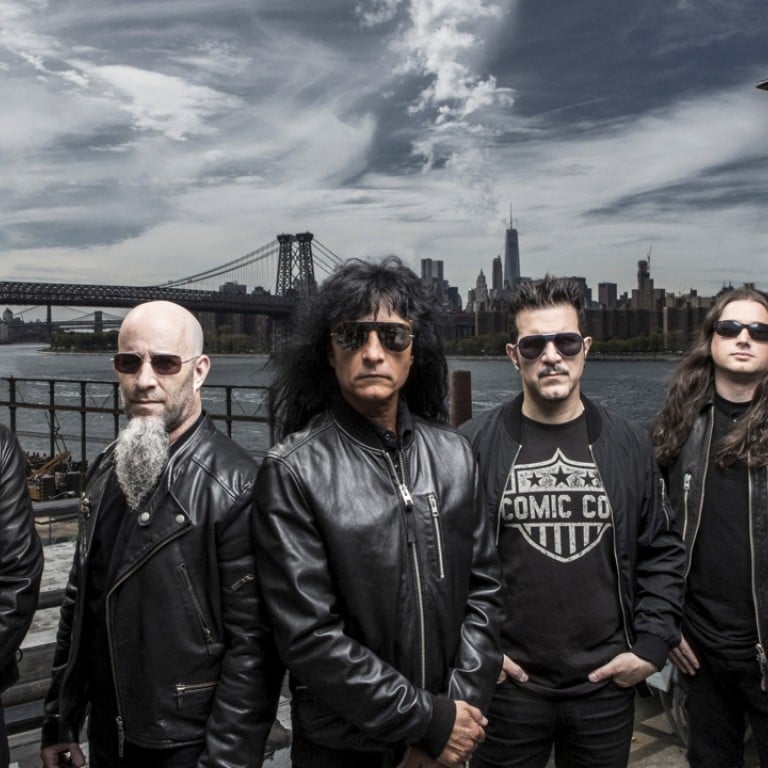
Anthrax show their metal on new release
After 35 years of ups and downs the New York heavy rockers are back at the top of their game with a new album
Heavy metal band Anthrax may have called their debut album Fistful of Metal, but after three decades of punishment to his hands, drummer Charlie Benante learned the hard way that his fists are flesh and bone after all.
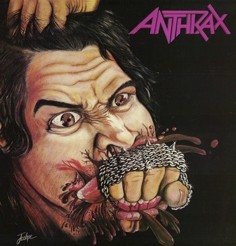
Benante needed surgery in 2013 to address a long-running battle with carpal tunnel syndrome. As he recuperated, he was sidelined for some of the band’s tour dates. That downtime had an upside, though, as Benante’s convalescence produced a prolific burst of songwriting that formed the basis of the group’s new album.
“I would become so possessed sometimes with playing by myself and writing songs that I would forget what I was doing,” Benante says.
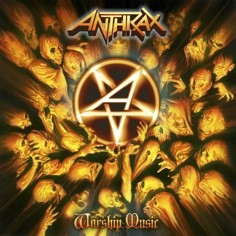
This songwriting trio relies on an established – albeit somewhat loose – composition method that begins with Benante’s sketches.
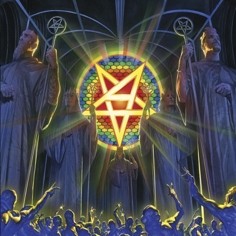
“We get in a room and we just start arranging, we start jamming,” Ian says. “And we do it the same way we did it 30 years ago. We’re writing for ourselves, as if really nobody else cared.”
As one of heavy metal’s “Big Four” bands – along with Metallica, Slayer and Megadeth – Anthrax helped reshape the genre in the 1980s by adding a more brutal attack and a punk sensibility. To that basic template, Anthrax adds a strong melodic sense that distinguishes them from their contemporaries.
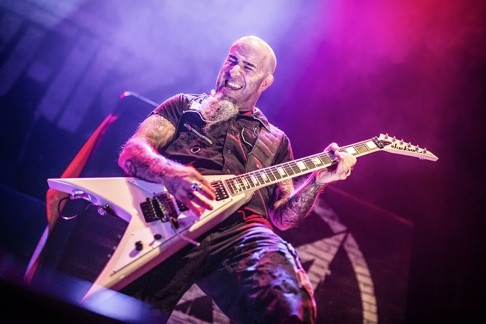
Although Benante, Ian, 52, and Bello, 50, work collaboratively, each has a speciality in the songwriting process. Once Benante’s riffs are hammered into full arrangements, Bello comes up with the melodies. Ian writes lyrics, which often reflect an approach to life that is hopeful at the individual level and relentlessly bleak at the collective level.
“As an optimist by nature, I also have a very nihilistic view of this planet, because I think it is a realistic view,” Ian says. “That’s why I live in a bubble with my family and my friends. I only peek outside that bubble once in a while.”
When he does emerge, Ian’s assessment of humanity is grim. After al-Qaeda-linked gunmen slaughtered 12 in an attack on the French satirical newspaper Charlie Hebdo, for instance, Ian’s rage spilled out in lyrics for Evil Twin, which was released as a single in October. Lead singer Joey Belladonna channels Ian’s anger, on such lines as “You represent your discontent / Slaughtering the innocent,” that lead into a soaring, singalong chant of “You’re no martyrs.”
“We’re still murdering each other over the same [things] that people were murdering each other over thousands of years ago – over whose god is better than whose god,” Ian says. “The fact that we haven’t moved past that, I think pretty much speaks volumes on the human race.”
Anthrax added Evil Twin to their live shows for an autumn European tour with Slayer. The song took on a greater resonance after the November 13 massacre at an Eagles of Death Metal concert at the Bataclan in Paris. Anthrax continued with its tour, though there were some jangled nerves in the aftermath.
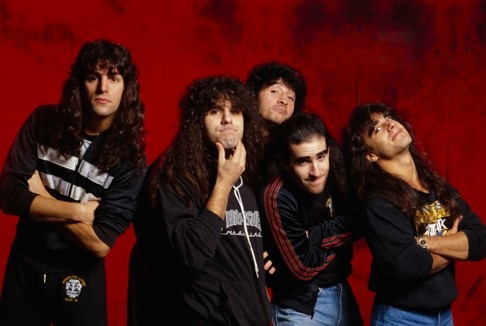
“It’s our job to entertain people. That’s what we do,” he says. “We give people an alternative for a couple of hours every night to go and have fun. We’re going to put our heads down and go to work, just like we’ve done for the last 30 years. And we’re not going to let what happened at the Bataclan stop us from doing what we do.”
ANTHRAX’s EP Armed and Dangerous from 1985
That sort of persevering attitude isn’t foreign to Anthrax. The group had an impressive run of critical acclaim and commercial success through the mid-1980s and early 1990s. But by the turn of the millennium, a string of line-up changes, record company implosions, personal tragedies and fickle audience tastes had left the band rudderless.
That’s why the group had modest expectations for Worship Music. But the album earned critical acclaim and a Grammy nomination. The success reinvigorated Anthrax.
“Worship Music kind of reintroduced us to the world,” Ian says. “We could just be Anthrax and go on tour, and then write this record and not have to worry about anything else.”
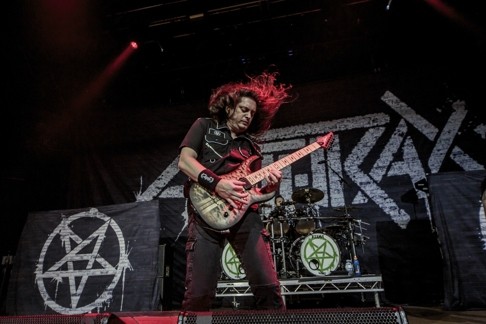
Bello says the band members took their time making the new album, emboldened by the success of Worship Music to be confident and comfortable in their own skins.
“We are hungrier now than we’ve ever been. And here’s why: I think we want to fight,” Bello says. “We feel like there’s a place that we belong. There’s something to strive for.”
The Washington Post

